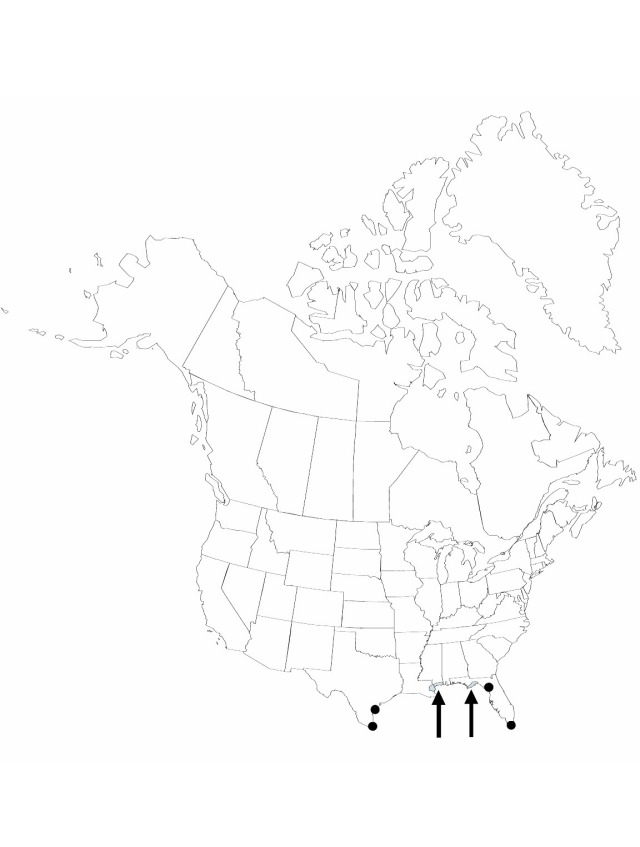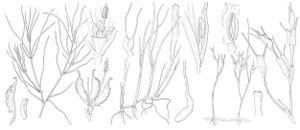Syringodium filiforme
in R. F. Hohenacker,Algae Marinae Exsiccatae 9: 426. 1860.
Leaves: sheath 1.5–7 cm; blade 5–30 cm × 0.3–2 mm; peripheral veins 2. Inflorescences: proximal branches dichasial, the distal monochasial, 1.5–5 × 1–4.5 cm; bracts: sheath 5–9 × 2–4 mm, blade 0.5–1 × 0.1–0.3 mm. Staminate flowers: peduncles 5–10 mm; anthers ovate to elliptic, 3–5 mm. Pistillate flowers: ovary ellipsoid. Fruits obovoid, 5–8 × 3.5–5 mm.
Phenology: Flowering and fruiting winter–summer (Feb–Jun).
Habitat: Sublittoral zone of marine waters with sandy or muddy substrates
Elevation: -25–0 m
Distribution

Fla., La., Miss., Tex., e Mexico, West Indies, Bermuda, Central America (Belize), Central America (Nicaragua), Central America (Costa Rica), Central America (Panama), South America (Colombia), South America (Venezuela)
Discussion
Syringodium filiforme has been listed as Cymodocea filiformis (D. S. Correll and H. B. Correll 1972) . Cymodocea was separated from Syringodium, however, by the flattened leaves and solitary flowers of Cymodocea and terete leaves and cymose inflorescences of Syringodium (C. den Hartog 1970). Syringodium occurs in the Caribbean Sea and Gulf of Mexico, as well as subtropical oceans of the Old World, whereas Cymodocea is restricted to the tropical and subtropical oceans of the Old World (C. den Hartog 1970).
Selected References
Lower Taxa
"elongating" is not a number.
